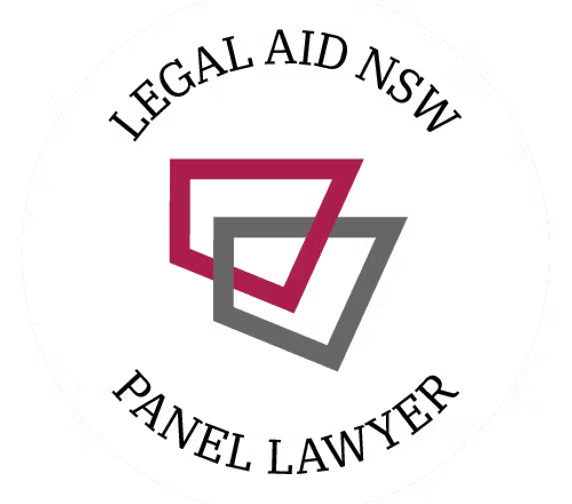What is Murder and Manslaughter?
In the world of criminal law, it’s very important to understand the difference between murder and manslaughter, especially in Victoria, Australia. The Crimes Act 1958 is a key law that helps us understand these crimes by giving clear definitions and explaining what needs to be proven for each charge.

Definition of Murder and Manslaughter
In Victoria, murder is a crime where the prosecution has to prove three things beyond a reasonable doubt:
- The act was done on purpose.
- The accused intended to kill or seriously harm someone.
- The act was against the law.
There are different types of murder charges, including:
On the other hand, manslaughter is when someone unlawfully kills another person but didn’t intend to kill or cause serious harm. There are two main types of manslaughter:
Circumstances Mitigating Charges
Certain situations can lead to a reduction from murder charges to manslaughter charges:
- Provocation: This is when the accused was provoked into losing control, resulting in an unintended death.
- Diminished Responsibility: This involves mental health issues affecting the accused’s ability to fully understand their actions.
It’s crucial for anyone facing murder or manslaughter charges in Victoria to understand these differences. The specific details of each case can greatly impact the charges and their consequences. It’s essential to seek help from experienced legal representation who can navigate these complexities effectively.
Legal Representation in Murder and Manslaughter Cases
When facing serious charges like murder or manslaughter, having a lawyer is extremely important. It’s crucial to speak with a criminal defence lawyer right away, especially during the first questioning by the police. This early involvement of a lawyer ensures that individuals know their rights and that those rights are protected from the very beginning.
How a Criminal Defence Lawyer Can Help
A skilled criminal defence lawyer plays a key role in navigating the complexities of such cases. Their main goal is to create a strong defense strategy that challenges the evidence presented by the prosecution. Here are some ways they do this:
- Examination and Investigation: Lawyers carefully review all evidence, looking for inconsistencies or mistakes in the prosecution’s case.
- Strategic Defense Planning: They explore potential defenses tailored to the unique circumstances of each case. This might include self-defense claims, lack of intent, or other mitigating factors.
- Expert Testimonies and Witnesses: Engaging expert witnesses can provide alternative perspectives on forensic evidence or offer insights into mental health assessments.
- Negotiation Skills: Defence lawyers skilfully negotiate with prosecutors for charge reductions or plea bargains when appropriate, aiming to secure more favorable outcomes for their clients.
By hiring experienced legal representation, individuals ensure that their case is handled with a strategic approach, focusing on both immediate protection and long-term considerations.
Legal Process for Murder and Manslaughter Charges
The Supreme Court of Victoria plays a crucial role in handling murder and manslaughter cases, as it has the authority over the most serious criminal trials. The court proceedings begin with a process aimed at ensuring fairness and justice, reflecting the seriousness of these charges.
Court Proceedings Overview
1. Pre-Trial Procedures
Initial hearings set the stage for subsequent legal processes, addressing bail considerations and the formulation of formal charges.
2. Jury Selection
A critical phase wherein both defense and prosecution have the opportunity to question potential jurors. This ensures an impartial jury that can objectively deliberate on the evidence presented.
3. Trial Procedures
The trial unfolds with opening statements from both prosecution and defense, outlining their respective cases. Presentation of evidence follows, where each side introduces witness testimonies, expert opinions, forensic evidence, and other relevant materials.
4. Role of Legal Representatives
Defense attorneys assertively challenge the prosecution’s evidence, often presenting alternative narratives or highlighting inconsistencies. Both sides engage in cross-examinations to scrutinize the credibility of witnesses and bolster their arguments.
5. Closing Arguments and Jury Deliberation
Concluding statements allow each party to summarize their case, emphasizing key points before jury deliberation. The jury then considers all aspects of the case to reach a verdict based on the evidence beyond a reasonable doubt.
In navigating this complex legal system, having expert legal representation is essential. Skilled attorneys ensure that their client’s rights are protected throughout every stage of the judicial process while striving for outcomes aligned with justice and fairness.
Common Defenses Against Murder and Manslaughter Charges
In Victoria, Australia, there are various defenses that can be used to challenge murder and manslaughter charges. These defenses can either contest the charges directly or reduce the level of guilt. The choice of defense strategy is crucial and often depends on the specific details of each case.

1. Self-Defense Claims
This defense argues that the accused had no choice but to protect themselves or others from immediate harm. If self-defense is successfully proven, it means that the intention to cause harm is outweighed by the urgent need to protect oneself.
2. Duress Situations
Duress refers to situations where a person commits an offense because they are being forced or threatened against their life or safety. To make this defense valid, it must be shown that a reasonable person in a similar situation would have felt compelled to act in the same way.
The legal difference between murder and manslaughter often depends on whether there was intent involved. Showing that there was no intent can have a significant impact on the outcome of the case. For example, proving that an act was accidental rather than planned may downgrade a murder charge to manslaughter.
3. Mitigating Circumstances
These are factors that do not completely clear someone of guilt but can lessen the severity of punishment. Examples of mitigating circumstances include provocation, mental impairment, or extreme emotional disturbance, which may result in involuntary manslaughter charges.
Each defense requires careful preparation and a thorough understanding of legal precedents. Our team at EAS Legal specializes in creating strategic defenses tailored to individual cases, using our expertise to effectively navigate these difficult situations.
Consequences and Sentencing Options
Understanding the seriousness of murder and manslaughter convictions requires a detailed examination of potential sentences under Victorian law. Murder, as one of the most severe offences, typically carries a mandatory life imprisonment sentence. However, courts may impose a non-parole period depending on the specific circumstances and gravity of the offence.
In contrast, manslaughter—being less severe than murder due to the absence of intent to kill—results in more varied sentencing options. The maximum penalty for manslaughter can extend to 20 years’ imprisonment, though actual sentences often vary significantly based on mitigating factors such as provocation or diminished responsibility.
The repercussions of these convictions extend beyond imprisonment. A criminal record for either offence profoundly impacts one’s personal life and future opportunities:
Rehabilitation programs offer a pathway for individuals seeking personal growth post-conviction. These programs focus on behavioral change, mental health support, and skill development, facilitating reintegration into society. While acknowledging the challenges posed by a conviction, EAS Legal remains committed to guiding clients through these complex issues with an empathetic approach tailored to individual circumstances.
Expert Legal Representation in Murder and Manslaughter Cases
Facing murder or manslaughter charges in Victoria, Australia is a daunting prospect, but you don’t have to navigate this complex legal landscape alone. At EAS Legal, we prioritize your interests with unwavering dedication. Our seasoned team, renowned for its expertise and integrity, stands ready to offer personalized and strategic solutions tailored to your unique circumstances.
Reach out today for a private consultation. Let us protect your rights and secure your future with the professional support you deserve. Contact EAS Legal—your trusted partner in navigating legal complexities.











